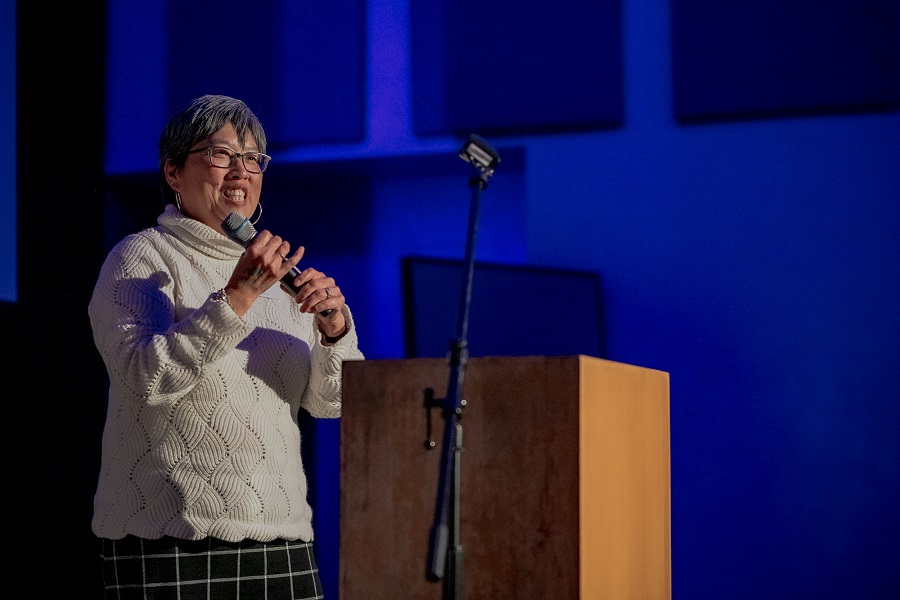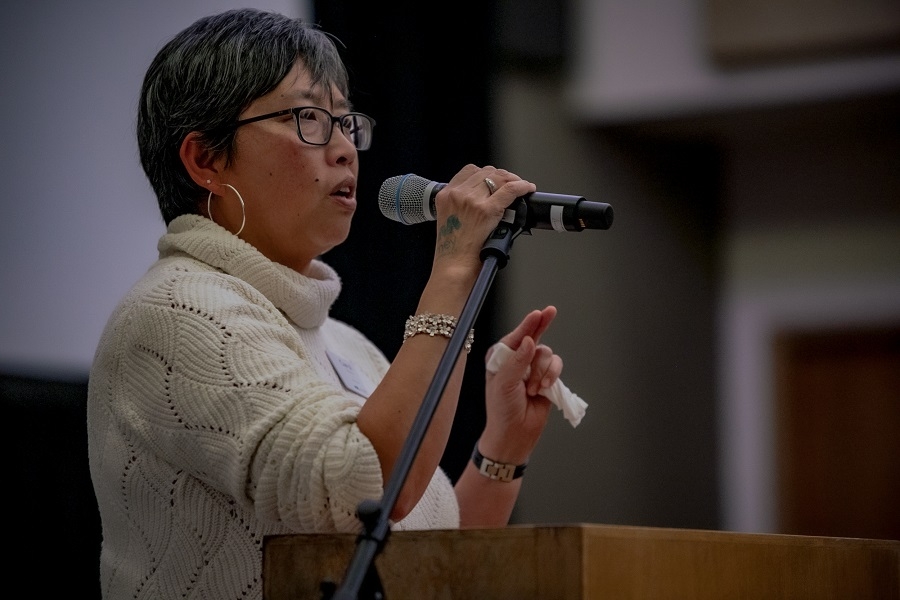Employers will make employees valued, heard and more productive by addressing issues of racial justice head on, say experts.
Protests continue in Oregon and across the country highlighting the killings of George Floyd, Ahmaud Arbery, Breonna Taylor and the many other people of color who have died as a result of police interaction.
As this cultural conversation around race continues, experts recommend businesses recognize the lopsided psychological impact these events can have on employees of color.
The unprecedented number of protests against racial inequities has prompted big names in the corporate world to come out with public statements about how they are tackling racial injustice.
Adidas North America released a statement in June, pledging to invest $20 million into U.S. programs that “support, empower and elevate” the Black community. It also promised that at least 30% of all new positions in the U.S. will be filled with Black and Latinx people.
Another sportswear corporation, Nike, pledged $40 million to support the Black community in the U.S.
Not all businesses are in a position to commit large sums of money to support Black people. But experts say business owners can support racial justice by providing employees of color safe channels to express themselves.
One recommendation is to set up platforms where employees of color can suggest changes to company policies that contribute to racial inequality. Employers are urged to take these conversations and recommendations seriously.
Carol Cheney, diversity equity inclusion manager at Meyer Memorial Trust, says employers can use time allocated for meetings or other gatherings to allow employees to share personal stories or set aside one-on-one office meetings for staffers to share their concerns, vent and problem solve.
“Be ready with tools that support healthy conflict,” says Cheney. “Remember that people may express deep anger. Before reacting or becoming defensive, consider before if they are angry at you or the system. Observe, validate and learn from that emotion as well as other emotions expressed.”
Cheney points out that stress, anger and fear are common reactions to instances of racial violence. Often employees can feel pressure not to share these feelings for the sake of politeness or talk about issues in a way in which they cannot fully express themselves.
This repression can translate into higher rates of illness, more missed work time, lowered productivity and lower rates of retention.

Carol Cheney at the Meyer Equity Speaker Series. Photo by Tojo Andrianarivo
Conversations about racial violence can make people uncomfortable, encourage defensiveness and lead people to change the subject. Cheney advises employers leading such conversations can counteract derailments by being vigilant about maintaining the flow of discussion, and be explicit about historical and current violence directed against African Americans.
Additionally, employers should not allow white employees call upon employees of color for help assuaging their own personal guilt.
While these feelings of guilt are valid, Cheney says white employees might need their own separate space to express feelings in a venue which does not create emotional burden for people of color.
The COVID-19 pandemic complicates efforts to address racial inequities in the workplace.
RELATED STORY:Why Business Owners of Color Are More Impacted By Covid-19
The pandemic makes connecting remotely the new normal, which can present challenges when having sensitive conversations.
Mari Watanabe, executive director of Partners in Diversity, says that while connecting over technology does not have the same impact as connecting person to person, video conferencing can reach wider audiences. The technology can connect employees in different cities and even states, all of whom could have different experiences to share about racial justice.
Watanabe’s organization has already hosted online events based on racial justice and inclusion during the pandemic and has developed best practices for engaging in sensitive discussions online.
She recommends having a facilitator to start the conversation and keep it moving, as well as using a platform’s breakout room feature to allow attendees to get to know each other in a smaller group setting. She also uses trivia and prizes to keep people engaged.
“The benefit of today’s challenges is that we’re using technology in a meaningful way to connect with others,” says Watanabe. “It is also reducing some of the barriers that meeting in person sometimes poses, such as travel and child care challenges.”
Employers should also recognize that as a result of engaging employees, some company policies will likely have to change. White employers should recognize they do not have all the answers, and that they come from a culture with norms and structures that might not feel welcoming to all, says Cheney.
According to Tema Okun, author of “White Supremacy Culture,” standards of perfectionism can be damaging characteristics of white culture that can prevent risk-taking and create barriers to moving forward.
“Holding conversations is only the beginning of the work,” Cheney adds.
For minimal cost, employers can organize and establish affinity groups for employees of color to support one another, and come up with recommendations on changes they might want to see. The Oregon Health Authority has provided a guide to help establish these sorts of groups online.
Employers able to spend more on diversity, equity and inclusion can provide paid-time-off for grieving or volunteerism, donate to racial justice organizations recommended by employees, or provide inclusion and sensitivity training to managers.
“Be aware that responses to current events will be complex. As a woman of color, I have felt joy and tentative hope, skepticism that things will not ultimately change, anger that so many Black men and women had to be eliminated before the current call to action took root, sorrow for their families and a strong need for the hard work needed to effect deep system and structural changes that will demonstrate real accountability beyond protests and statements,” says Cheney.
“Don’t be surprised if reactions to your support are just as mixed.”
To subscribe to Oregon Business, click here.









